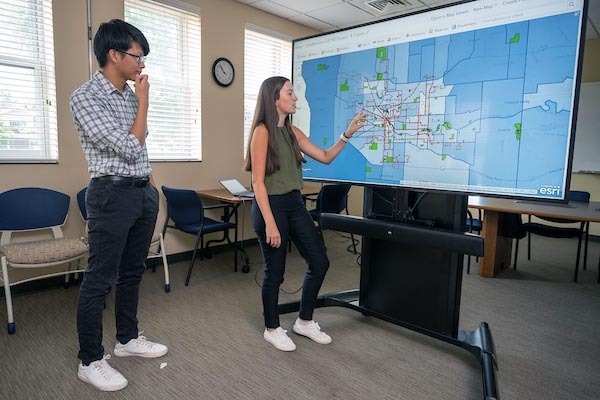Rapid change in both urban and rural areas is encouraging governments at all levels to seek ways to transition to an equitable, resilient future. The challenges in the Michiana region, common to many Great Lakes and industrial legacy areas, drive the Civic Innovation Lab’s agenda.
The Lab uses applied technology and research methods to meet community needs and improve public institutions. By partnering with academic institutions, government, community organizations, and industry, the Lab creates a network of collaborators to address evolving research needs. This collaborative approach enhances civic engagement and promotes sustainable development in the region.
Community-Engaged Educational Ecosystem Model
Through the Community-Engaged Educational Ecosystem Model (C-EEEM), CIL aims to address these challenges by building partnerships in the Michiana region. These collaborations create a high-impact STEM learning environment through project-based learning, community engagement, and development techniques rooted in science, engineering, and technology along with project management, team leadership, and design thinking. This approach promotes diversity, equity, and inclusion while allowing students to address public issues such as access to healthcare, affordable housing, and environmental sustainability.

Core Focus Areas
The Lab focuses on:
- Safe, Affordable, and Efficient Housing
- Urban Environmental Sustainability and Resilience
- Equitable Community Health & Wellness
- Data-Informed Decision Support for Community Development
These domains are interconnected, and the Lab prioritizes research that spans multiple areas.
Past Projects
- 2024 Project Highlights
- 2023 Project Highlights
- 2022 Project Highlights
- 2021 Project Highlights
- 2020 Project Highlights
- 2019 Project Highlights
Need more information?
The Civic Innovation Lab operates evidence-based summer internship and youth programs that broaden the impact of research and innovation in society. For inquiries or to arrange a consultation, reach out to CIL’s Director, Jay Brockman, by clicking the button below.